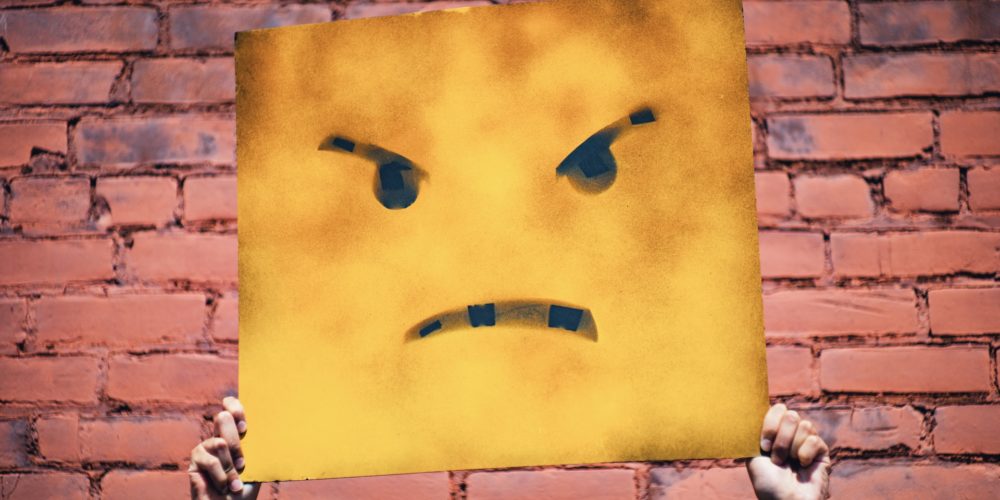This footballing moment reminded us of our shared humanity

A rare moment of magic occurred at a football match recently.
During the English Premier League game between old rivals Liverpool FC and Manchester United last week, Liverpool’s fans broke out in applause during the seventh minute of the game. Why? To condole Cristiano Ronaldo, whose shirt number is, famously, seven. The player had sadly just lost his newborn child. One thing, though: Ronaldo does not play for Liverpool; he plays for their bitter rivals, United.
Some context. These two sets of fans are not known for these generous gestures towards each other. They have a long-standing rivalry and routinely call each other names that my editor cannot allow to be printed here. There is mutual detestation, and, in different eras and depending on which team is in the ascendancy, uncouth gloating and spiteful envy. Indeed, sections of the fan base are known to even mock tragic disasters that have befallen their rival fans.
Yet the gesture was made. The Liverpool fans also sang their iconic anthem “You’ll Never Walk Alone” as a message to the grieving Ronaldo. It was an intensely moving moment—and so very rare in the hot cauldron of competing footballing loyalties. Will it have any lasting impact? Probably not. Most fans on both sides will probably go back to infantile name-calling and visceral hatred.
Why are we humans like this? Moments like the seventh minute at Anfield last week remind us of something elemental: we are all the same! We have very similar bodies and genetic structures; we feel near-identical emotions about the same things; our organisational structures have more in common than difference. Why is it we let things as superficial as skin colours, religions, birthplaces—and football teams—divide us?
Liverpool and Manchester fans—the local ones—originate from very similar cities in the north-west of England. They are mostly down-to-earth, working class folk who eat similar foods, drink in similar pubs, wear similar clothes. Yet they are divided, deeply, by the football team they choose to support. It gets even more silly. Each city has more than one football club in it; and fans seem to reserve special hatred for those who live closest to them in what is called a “local derby game.” Go figure.
Two things. The first is the human need for identity and belonging. We are easily led into these subgroupings, even though they are mostly puerile and fictitious. Some of us convince the rest of us to band together, and to do so against others. It is not enough to all be human; we must invent smaller categories, and we must pit ourselves against others.
The second thing to note is that it’s all fabricated! Nations, religions, football teams are all stories. They are created by humans. They do not originate in nature or from the laws of existence; they are invented by a few people and propagated relentlessly thereafter. They create artificial “us and them” situations, nonsensical divisions. We are not like this from birth; the brainwashing is done to us—by parents, relatives, influencers, teachers and those of limited vision and spirit.
No child is born knowing about these earthly divisions; but pretty much every child soon learns about them. Not by direct experience of the badness of “those others”, mind; but by stories placed in the nascent mind by grownups. They are like that, not like this; their people wronged our people; they worship false gods, unlike us; they eat funny things; they support the wrong team.
They hate us; we hate them.
For shame. This arrant nonsense must be resisted and not supported. I will never let my support of anything—an ideology, a way of being, a philosophy, a cultural norm, a sports team—make me hate anyone else. Support your team to the hilt, cherish your beliefs, love your culture, by all means. We should all be free to have our particular beliefs and norms and favourites, but we cannot be free to instil and promote hatred of others. The worst of us must not become the best of us.
They have terrible consequences, these divisions that begin as partisan jokes and rivalrous banter. They deepen the divides in our minds, and they prepare the ground for far worse: ugly intolerance, tribal warfare, mass eliminations, genocide.
Those with more expansive vision see something much bigger. They see that we are far, far more similar than we are different; and that most differences are artificial, and introduced by those who thrive on division. They see that we are all being played, by a few who become rich and powerful and influential by using fake difference as their ride to personal success.
Wise people resist the herding into small and petty enclosures. So should we all.
(Sunday Nation, 1 May 2022)

Buy Sunny Bindra's new book
The X in CX
here »
Popular Posts
- The pause that saves usJune 8, 2025
- Where are you rushing to—your funeral?June 29, 2025
- How to spot a real thinkerJune 15, 2025
- Built the app, forgot the flowJune 22, 2025
- The first push is the hardestJune 1, 2025















